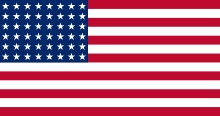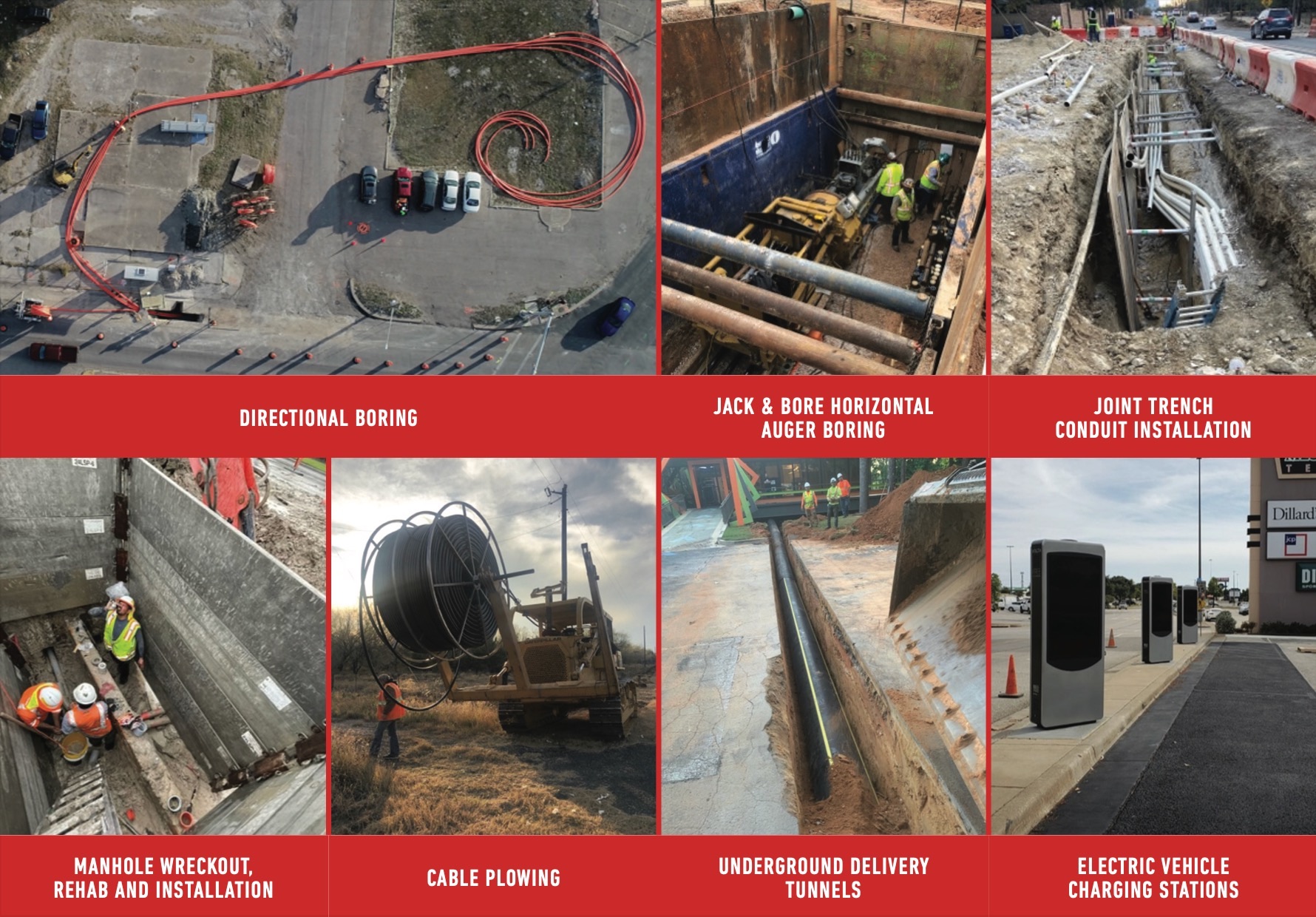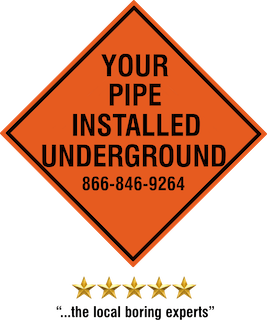Boring Companies
Guided Auger Boring - Boring Companies
Boring companies utilize various specialized trenchless technologies to install and maintain underground infrastructure efficiently. Here’s how these methods are applied to different industries and utilities:
Guided Auger Boring - Boring Companies
1. Horizontal Directional Drilling (HDD)
- Process: A steerable drill head creates a bore path, followed by the installation of pipes or cables.
- Applications: Commonly used for long-distance installations of electric lines, fiber optic cables, water pipes, oil and gas pipelines, and sewer systems.
- Advantages: Minimal surface disruption, ideal for crossing rivers, roads, or environmentally sensitive areas.
2. Directional Boring
- Process: Similar to HDD but often applied for smaller-scale projects. It involves precisely boring a path underground and pulling conduits back through the borehole.
- Applications: Electric, fiber optic, and small-diameter water or gas lines in urban or residential settings.
- Advantages: Cost-effective and precise for short distances.
3. Jack and Bore
- Process: A pipe is jacked into place while an auger removes soil from within the pipe.
- Applications: Utility installations beneath highways, railroads, or existing infrastructure, such as large-diameter water or sewer lines.
- Advantages: Reliable for larger pipes and stable ground conditions.
4. Horizontal Auger Boring
- Process: A rotating auger inside a casing removes soil, creating a pathway for utility installation.
- Applications: Sewer, water, and oil pipelines, especially in stable soils.
- Advantages: Can handle larger-diameter pipes and provides precise alignment.
5. Trenchless Technologies
- Process: General term for methods like pipe bursting, microtunneling, and slip lining to replace or install utilities without open trenches.
- Applications: Sewer line rehabilitation, water main replacement, and installation of new utilities.
- Advantages: Reduces surface disruption, environmental impact, and project time.
6. Electric and Fiber Optic Installations
- Methods: HDD and directional boring are preferred for these utilities due to their ability to navigate congested areas with precision.
- Applications: Power grids, broadband networks, and communication infrastructure.
- Advantages: Maintains connectivity with minimal downtime.
7. Sewer and Water Systems
- Methods: Jack and bore, HDD, and trenchless methods are used to install or replace underground sewer and water lines.
- Applications: Municipal systems, residential and commercial plumbing.
- Advantages: Long-lasting installations with minimal environmental disruption.
8. Oil & Gas Pipelines
- Methods: HDD and auger boring are common for creating paths for oil and gas transportation pipelines.
- Applications: Crossings beneath rivers, roads, and urban areas.
- Advantages: Ensures safety and efficiency over long distances.
9. Utility Installations
- Methods: Any of the above techniques are used depending on the utility type, ground conditions, and project requirements.
- Applications: Gas lines, electric conduits, telecommunications cables, and water or sewer systems.
- Advantages: Cost-effective, reliable, and environmentally friendly.
Guided Auger Boring - Boring Companies Near Me
Why It Matters:
These methods collectively help boring companies address the growing demand for underground infrastructure while minimizing environmental impact and disruption to communities. They play a critical role in modernizing utilities and meeting the needs of sustainable development.


